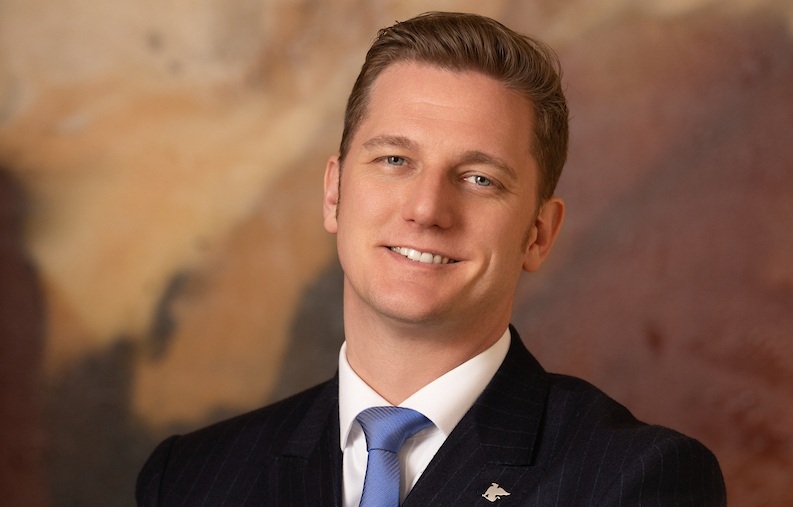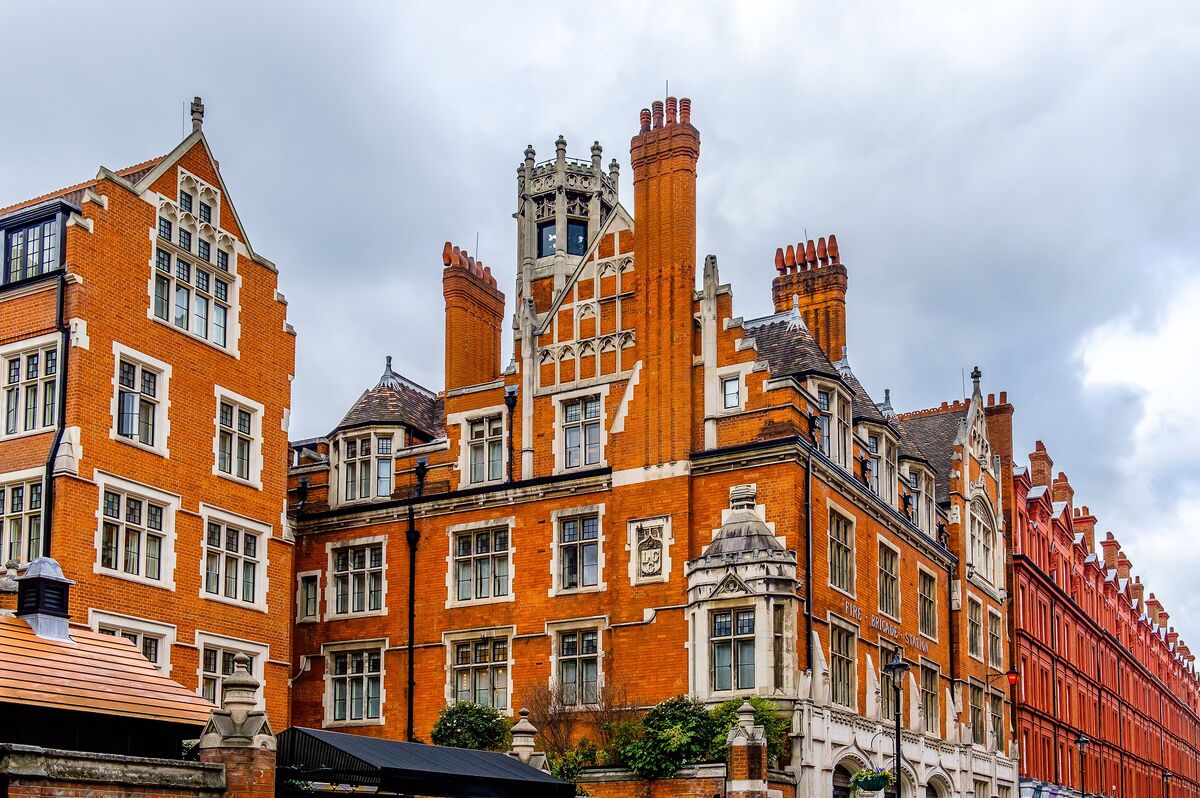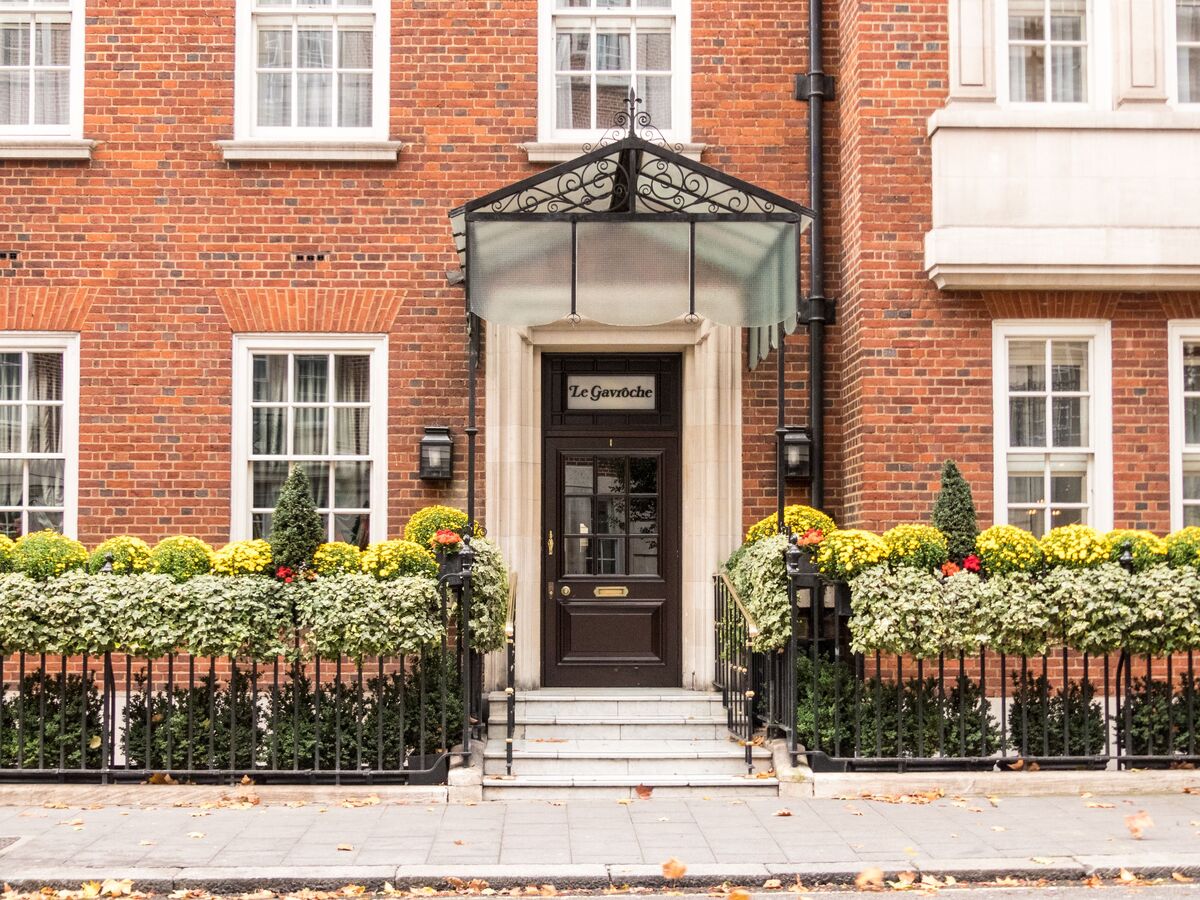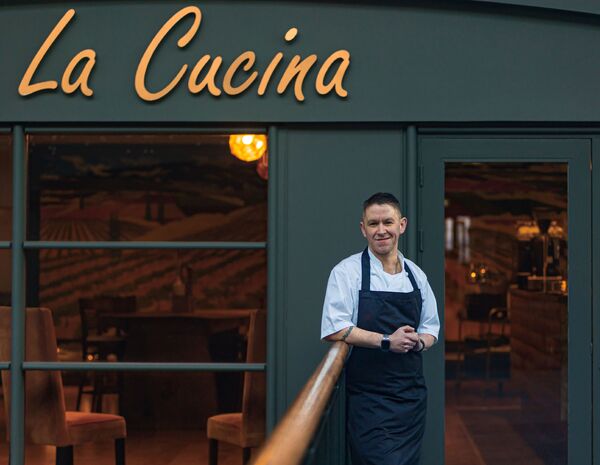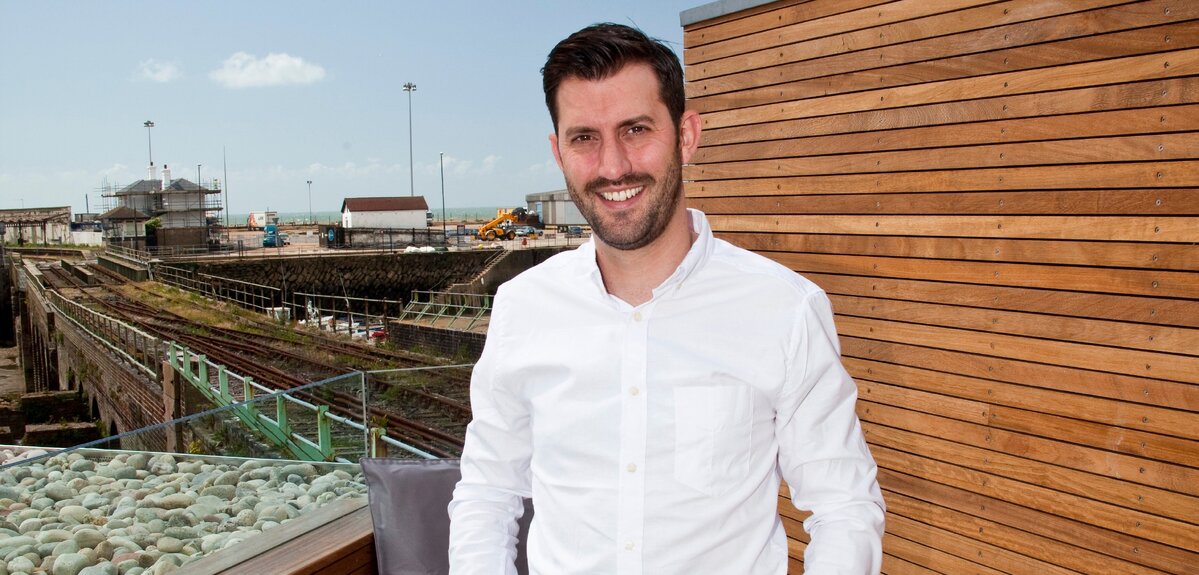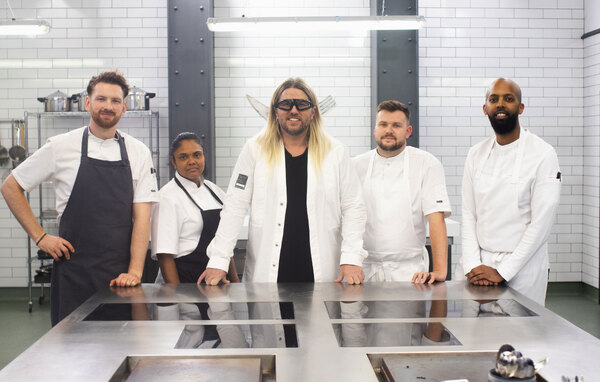This much I know: Harry Lomas
Harry Lomas is head of culinary for Delaware North at Wembley Stadium. He talks to Lisa Jenkins about starting his career with the Army and the opportunities for young chefs today
How did your hospitality career begin?
I knew early on that there was not going to be many opportunities for me in my home village of Barrowford in Lancashire.
I was diagnosed with dyslexia quite young and subsequently fell out of secondary school. I needed a new start and the opportunity to join the Army as a chef was perfect – I could travel, train as a chef and get paid at the same time.
I started off as a young junior soldier learning my trade at the Army Apprentice College in Aldershot. I did a two-year apprenticeship and achieved my first qualifications and City in Guilds.
I was then posted to my first Army unit in Catterick as a young lance corporal. I was responsible for feeding the Sergeants’ Mess members of the Royal Anglian Regiment. Later I was posted to Northern Ireland, Germany, Cyprus and around the world.
I was commissioned from warrant officer to captain, as well as taking a turn as families and careers officer to the Gurkhas and Transport Regiment. I ran the food supply in Cyprus and the United Nations before returning to take on the post of chief of staff, responsible for training the next generation of military chefs, back in Aldershot, where it all began.
In my final role I was responsible for the operational feeding of troops in Afghanistan and around the world. I retired after 34 years with the Army in 2011.
Do you believe being a chef is still a good job?
The hospitality industry is one of the best places to work. You can go as far as your dreams and ambition will take you, whatever your academic or professional qualifications. If you love food and people, then there is no better career.
However, you only get out of life what you put into it, so work hard and you will see results.
Can you describe your role as head of culinary for Delaware North
My role at Delaware North is working with my team to deliver the best food and hospitality for Wembley Stadium. My role is very much about people and I work hard to get the best out of our staff to deliver imaginative concepts, while at the same time providing professional development and training.
We work closely with our clients, the Football Association (FA), to deliver a food offer that attracts members and supporters to the stadium, whether it’s football fans or concert-goers – it all requires a professional and personal touch.
Delaware North holds the bar high; it respects professionalism and you are given the autonomy to deliver the service and an opportunity to influence the delivery. While the commercial side of the business is extremely important and keeps the business on a firm footing, Delaware North is very much a people-oriented company that respects loyalty.
How do you support the industry?
I am involved with professional bodies and organisations who look after the next generation of chefs, such as the Worshipful Company of Cooks, which champions excellence in the craft of cooking.
I am an ambassador and judge for the Food Teacher’s Young Chef of the Year award, which makes a difference to children and their families, with more than 4,000 children across the UK and Ireland taking part this year. The award is a six-week challenge for pupils aged nine to 11, which covers the Key Stage 2 national curriculum for cooking and nutrition.
I’m also a judge for various culinary competitions around the UK, and I mentor students and give career advice wherever I can. The competition circuit in the UK is one of the best platforms for young chefs to gain confidence and development to reach their full potential.
I am a freeman of the City of London, fellow of the Institute of Hospitality, member of the Craft Guild of Chefs and a member of the Réunion des Gastronomes. I also represent several worthwhile charities.
What is the best piece of advice you were ever given?
Treat others how you would like to be treated yourself. This is perhaps something I did not practice in my younger days, but I have come to learn in my latter days.
CV
- 2018-present Head of culinary, Wembley Stadium, Delaware North UK, London
- 2012-17 Executive head chef, the Grove, Chandler’s Cross, Herts
- 2011-12 Catering cleaning and waste manager, London, Organising Committee of the Olympic & Paralympic Games, the Excel London
- 2009-11 Director of food services for the British Army, Andover, Hampshire
- 2005-09 Food service officer, HQ London District, Horse Guards, Whitehall, London
- 2002-05 Chief of staff, Defence Food Services School, Aldershot, Hampshire
- 2000-02 Officer commanding catering support squadron, Cyprus
- 1997-2000 HR and personnel officer of Transport Regiment, Colchester, Essex





